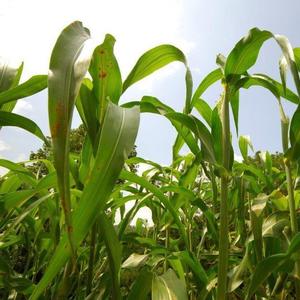RSB approves new low ILUC risk standard

June 3, 2015
BY Roundtable on Sustainable Biomaterials
The Roundtable on Sustainable Biomaterials kicked off its annual General Assembly meeting with a delegation vote on the new "Low iLUC Risk Biomass Criteria and Compliance Indicators."
The standard was approved by consensus and will be an 'optional module' for operations undergoing RSB certification.
Members commented on the new indicators being a key step forward for RSB-certified operators that comply as they will be entitled to an extra "low iLUC risk" on-product claim. Producers will be able to demonstrate that biomass was produced with low indirect land use change (iLUC) and therefore minimal impact on food production or biodiversity.
The standard is based on a methodology developed in collaboration with World Wide Fund for Nature and Ecofys.
The RSB Annual General Assembly allows RSB's diverse membership to come together to take stock of the organization's progress and plan for the future. Public sessions on 2 and 3 June featured debates and workshops attended by: The Coca-Cola Co., Nestlé Research Center, Boeing, Tetra Pak, SunChem, UNCTAD, WWF, SkyNRG, UN Sustainable Energy For All, European Bioplastics, and many others.
Advertisement
Advertisement
Achim Steiner, United Nations Environment Programme executive director said, "I am fully confident that this event will further showcase to the larger community of biomaterials producers, users, regulators, and other influential stakeholders, the unquestionable value of strong sustainability standards to be applied across value chains and uses, worldwide."
"RSB had a successful business meeting and made the necessary decisions for the next moves as we work with biomaterial industries for a sustainable future," said Barbara Bramble, board chair of RSB.
"It is fantastic to see the enthusiasm and dedication of RSB members for a global standard and certification system that ensures respect for food security, the environment and social justice in biofuel and biomaterial production," said Rolf Hogan.
RSB's 2015 General Assembly members-only meeting on the first day of a three day program, also resulted in the reelection of various board of directors. The assembly elects individual directors for a term of two years. For the biographies of the current directors please see here.
On June 1, the Assembly elected or re-elected the following individuals as directors:
Advertisement
Advertisement
- Khoo Hock Aun, Cosmo Biofuels Group, Malaysia (re-elected)
- Arturo Barrit, Associated Labor Unions-Trade Union Congress of the Philippines (ALU-TUCP), Philippines (re-elected)
- Barbara Bramble, National Wildlife Federation, USA (re-elected)
- Kevin Fingerman, Humboldt State University, USA (new - replacing Helena Chum from National Renewable Energy Laboratory)
- Willemijn van der Werf, LanzaTech, USA (re-elected)
- Maarten van Dijk, SkyNRG, Netherlands (re-elected)
Related Stories
The USDA significantly increased its estimate for 2025-’26 soybean oil use in biofuel production in its latest World Agricultural Supply and Demand Estimates report, released July 11. The outlook for soybean production was revised down.
The U.S. Energy Information Administration maintained its forecast for 2025 and 2026 biodiesel, renewable diesel and sustainable aviation fuel (SAF) production in its latest Short-Term Energy Outlook, released July 8.
XCF Global Inc. on July 10 shared its strategic plan to invest close to $1 billion in developing a network of SAF production facilities, expanding its U.S. footprint, and advancing its international growth strategy.
U.S. fuel ethanol capacity fell slightly in April, while biodiesel and renewable diesel capacity held steady, according to data released by the U.S. EIA on June 30. Feedstock consumption was down when compared to the previous month.
XCF Global Inc. on July 8 provided a production update on its flagship New Rise Reno facility, underscoring that the plant has successfully produced SAF, renewable diesel, and renewable naphtha during its initial ramp-up.
Upcoming Events










